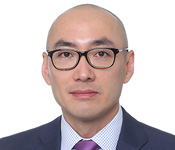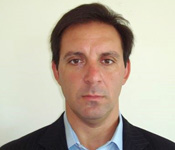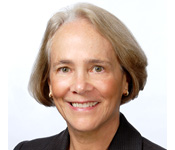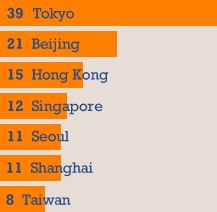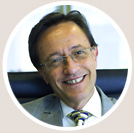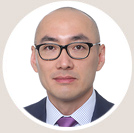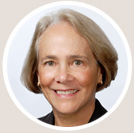Many alumni of the University of Virginia School of Law who have traveled to Asian countries for work have found long and lasting careers. We talked to six alumni working in Asia to gather their work experiences and tips for students and graduates on how to succeed there.
The UVA Law Network is an occasional series on careers for graduates. The school's 20,000 graduates are located in 50 states and more than 60 foreign countries.
Advice from Alumni in Asia
- Hyung Ahn '98, Retired Partner, Linklaters, Singapore
- Brett Braude '94, Co-Founder and Senior Advisor, Intelligence Macau, Hong Kong
- Mimi Hutton '79, Of Counsel, Withers, Hong Kong
- Steven R. Okun '91, Senior Advisor, McLarty Associates, Singapore
- Eduardo Ramos-Gomez LL.M. '85, Partner, Duane Morris & Selvam, Singapore
Hyung Ahn '98
Retired Partner, Linklaters, Singapore
How did UVA Law prepare you for your practice or career choices?
UVA Law and the great professors there gave me a solid foundation in learning to “think like a lawyer.” Not just in crafting complicated legal analyses, but more importantly, in breaking those complicated issues down into actionable advice for clients. That is probably the single most important gift that I got from my time at UVA.
I would also like to thank UVA for helping me gain a bit of balance in my life. I’ve found the ability to step away on occasion and, say, enjoy a game of softball, something that’s kept me sane (more or less) all these years in law practice.
Do you have any advice for new UVA Law grads wanting to work in Asia?
Wanting to work in Asia is kind of like wanting to work in Europe. It’s a huge geography, with vast differences from country to country. You should think hard about where you think you want to work, why there, and what you hope to gain from the experience. Even “China” is a treacherous generality — Beijing, Shanghai, Hong Kong and Taiwan are each very different places to work. So you should do a bit of homework and research what the different countries have to offer.
It’s also helpful to be flexible in your expectations. Asia continues to change rapidly, and Hong Kong today is a very different place to work than Hong Kong was 10, or even five years ago. Opportunities will come up that you may well not have expected. If you are going to have a long-term career in Asia, it really helps to keep an open mind and be willing to adapt, as circumstances will change.
Finally, I would suggest that of all the qualities you could cultivate working in Asia — or anywhere really — most important is being a good lawyer. Coming out of UVA, you’ll be qualifying as a U.S. lawyer in a foreign country, and that’s the skill set that lets you stand out. You may also have language skills or family connections — people always talk about how relationships matters in Asia. That is all true and the better your relationships with peers and clients, the better your know-how of local customs, that all helps. But I wouldn’t neglect your training and the hard hours spent becoming the best lawyer you can be. If people don’t rate you as a good lawyer, all that other stuff won’t help you much in the long run.
Brett Braude '94
Co-Founder and Senior Advisor, Intelligence Macau, Hong Kong
How did UVA Law prepare you for your practice or career choices?
UVA Law helped prepare me for my career by honing my ability to think critically, but also to focus on analyzing a situation and figure out multiple potential alternatives for a solution. The Law School’s ethical focus helped reinforce my reasons for going into law, which was to help others to achieve their business and personal goals. UVA Law emphasizes people and networking along with problem-solving — which have been the foundations of my career as a legal adviser to a leading investigations and merchant banking firm in Asia.
Do you have any advice for new UVA Law grads wanting to work in Asia?
My advice would be to broaden your search and plans to include not only big-name law firms and financial institutions in Asia, but also to look at the so-called "second tier" of funds and advisory groups. In fact, that is where the action is, and where better and faster training occurs, and where you can get closer to the deals and key clients and accelerate your learning curve. That has been my experience in recent years — many of the most intelligent, transaction-focused persons have spun out of the big banks and firms and set up more nimble platforms. While the starting salaries might be smaller and employment programs may be less formalized, this "gray area" tier of business is most likely to take a flyer on a smart, motivated UVA Law grad, and throw them in, even if the Chinese or Asian language background is not there. People are very busy in this sector, and will value your intelligence, diligence and competence, but you may have to be assertive and just fly over and throw yourself in, rather than wait for a formal recruiting process.
Mimi Hutton '79
Of Counsel, Withers, Hong Kong
Do you have any advice for new UVA Law grads wanting to work in Asia?
If you want to work for an international law firm, it would be best to work in the head office of the firm for a few years first, to get proper training and build networks within the firm. (I did not follow that advice, I hasten to add; I joined Coudert Brothers in Hong Kong right out of law school in 1979 and have stayed in Hong Kong for my entire career.)
When you get to Asia, you will likely be thrown in to a busy practice setting where you will be expected to deal with clients directly, work on complex matters under enormous time pressure, deal with time zone issues, bring in your own work from an early stage of your career, and manage those client relationships on an ongoing basis.
The work is never boring, and when you can get some time off, the social life and travel opportunities are great. In most Asian cities, it is possible to hire excellent housekeepers and nannies, which makes combining work and parenthood easier. Having native fluency in written and spoken Chinese would be a plus in North Asia, but native fluency in spoken and written English will also be expected.
Steven R. Okun '91
Senior Advisor, McLarty Associates, Singapore
How did UVA Law prepare you for your practice or career choices?
Long-term, what always interested me most was having the ability to work in the U.S. government. The principal reason for attending UVA Law was my belief that this legal education would serve as the foundation for obtaining such a position. So, I focused my law school classes and experiences on an education that created a pathway for me to get there.
Without knowing it, however, UVA Law very much prepared me for living and working in Asia.
Many of my professors — and fellow classmates — showed me that law school was not just learning what the law is, but more importantly understanding why the law is the way it is, and to then be in a position to project where the law is headed. This ability to think like a lawyer was the perfect preparation for living and working across such a dynamic region as Asia.
Upon graduation in 1991, I joined a Washington, D.C.-based law firm. Two years later, I joined the Clinton administration, and ever since each of my positions has been at the intersection of law, policy, politics and the press. For the last 14 years, I have been lucky enough to work regionally in Asia based out of Singapore.
Do you have any advice for new UVA Law grads wanting to work in Asia?
It is very difficult to find a job in Asia when searching from the U.S. — and getting tougher all the time. My journey to Asia started in 1999 when I joined UPS’ Washington, D.C., office. In 2003, when UPS was looking to build a public affairs practice in Asia Pacific, what they needed first and foremost was someone who knew UPS and had a public affairs background. Then, the company’s only option was to bring someone out from the U.S. who had those skills and experiences.
It is still possible to have an employer bring you to Asia. But the odds of that happening are constantly in decline. More than a decade since my Asia journey began, with globalization and all that goes with it and the ever-increasing talent pool of local hires, expatriate postings are much more limited. For example, in my case, the two successors to my UPS position were from China and Singapore, respectively.
Once in Asia — whichever country you choose — you can build a network while learning about opportunities that exist for people of your skill set and experiences. That is almost impossible to do remotely. This might be high-risk, especially if you are coming without a job, but I see Americans all the time who are willing to take the risk — and those are the people most likely to succeed in getting employment. That is the nature of competition in today’s global market.
Second, while being bilingual can be a prerequisite for getting a job in certain markets, such as China, being multicultural is a prerequisite in every market. People who succeed in Asia have to be able to work across cultures. Engaging different cultures with respect is not an option — it is essential. Being multicultural can be learned, but a person must understand that they need to learn it. My education at UVA Law was a good precursor to working multiculturally, as the breadth and depth of study and knowledge is a good foundation for having to learn and understand different cultures, to learn their history and customs, and then to place that into the context of how best to move forward in the 21st century.
Eduardo Ramos-Gomez LL.M. '85
Partner, Duane Morris & Selvam, Singapore
How did UVA Law prepare you for your practice or career choices?
The master of laws program at UVA was the extraordinary academic tool that allowed me to pivot my career in both public, private and international law.
Do you have any advice for new UVA Law grads wanting to work in Asia?
Be global. Think of yourself and the United States only as a humble contributor to an international symphony. Think of yourself as a worthy contributor and builder of a new world order that respectfully engages nations, cultures and individuals. Conduct research on the Asian country you wish to visit. Learn about its history, politics and culture through the internet and libraries. Travel to the country and hear from the expatriates working there so you get a better idea of the policies. Meet and embrace the locals. Make contacts and engage international practitioners, as well as local ones, and maintain good relationships with them. Attend seminars and events to develop your business contacts and broaden your knowledge of the country. Be really passionate about law and assess and respect its value and the strength it has to change, transform and improve communities and lives. Do not short-change yourself by imposing time limits to your tenure in Asia beforehand, nor, prejudge or select a particular country, practice or possible employer. Be open and embrace possibilities — allow life to surprise you. As the saying goes, “No one gets as far as the one who doesn’t really know where he is going!”

